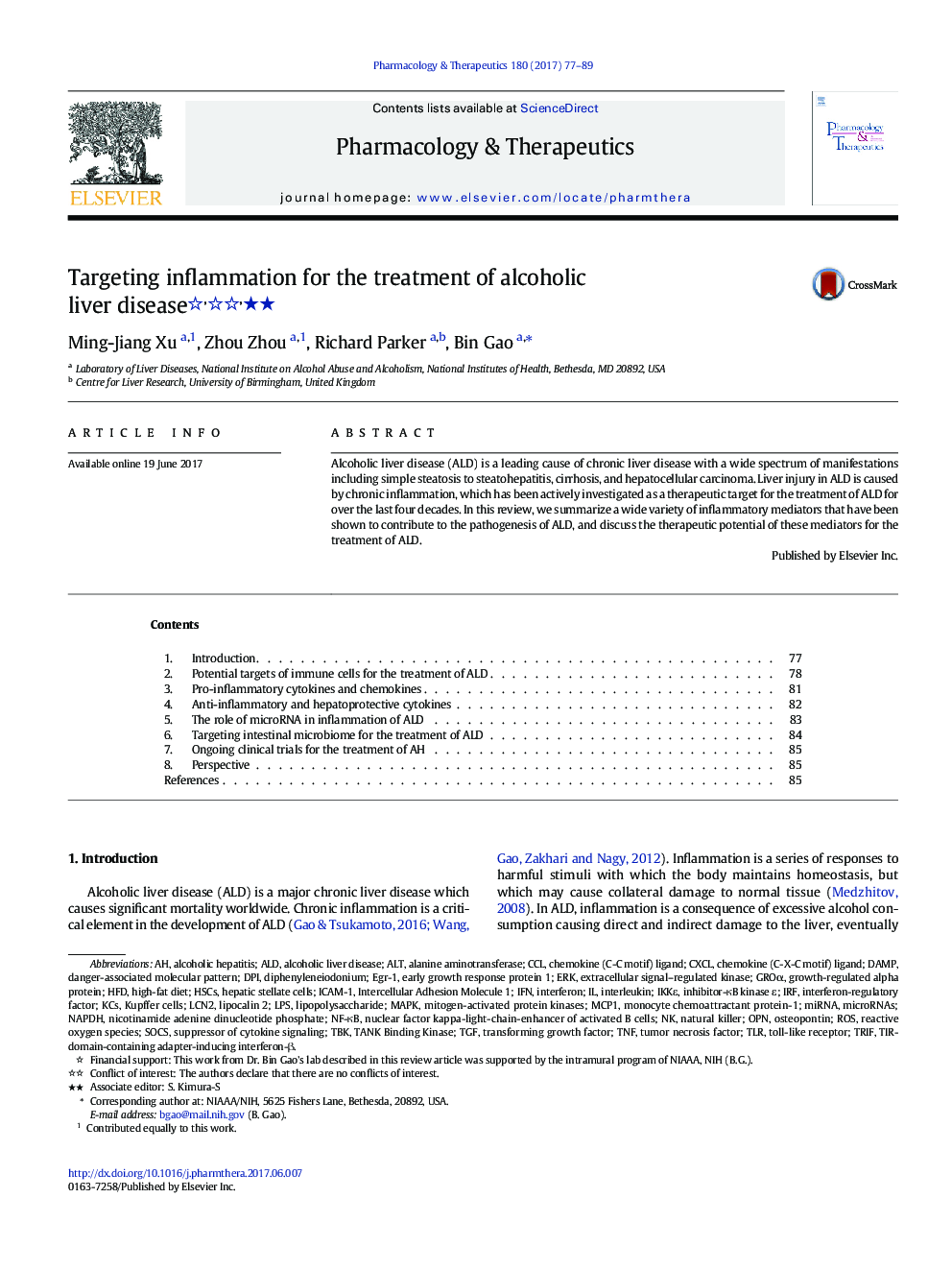| Article ID | Journal | Published Year | Pages | File Type |
|---|---|---|---|---|
| 8536995 | Pharmacology & Therapeutics | 2017 | 13 Pages |
Abstract
Alcoholic liver disease (ALD) is a leading cause of chronic liver disease with a wide spectrum of manifestations including simple steatosis to steatohepatitis, cirrhosis, and hepatocellular carcinoma. Liver injury in ALD is caused by chronic inflammation, which has been actively investigated as a therapeutic target for the treatment of ALD for over the last four decades. In this review, we summarize a wide variety of inflammatory mediators that have been shown to contribute to the pathogenesis of ALD, and discuss the therapeutic potential of these mediators for the treatment of ALD.
Keywords
CXCLALTHFDTLRTGFDPIMCP1CCLOPNSOCSEGR-1KCSIRFHSCsLCN2TNFIKKεGROαTBKNAPDHERKNF-κBLPSDAMPICAM-1natural killerMAPKROSTRIFALDAlanine aminotransferaseOsteopontinDanger-associated molecular patterninterferonIFNTIR-domain-containing adapter-inducing interferon-βinterleukinalcoholic liver diseasetransforming growth factorToll-like receptorDiphenyleneiodoniumhigh-fat dietmicroRNAssuppressor of cytokine signalingKupffer cellsHepatic stellate cellsInterferon-regulatory factortumor necrosis factornuclear factor kappa-light-chain-enhancer of activated B cellschemokine (C-C motif) ligandlipopolysaccharideLipocalin 2chemokine (C-X-C motif) ligand Intercellular adhesion molecule 1MiRNAnicotinamide adenine dinucleotide phosphateAlcoholic hepatitismonocyte chemoattractant protein-1early growth response protein 1Extracellular signal–regulated kinasemitogen-activated protein kinasesReactive oxygen species
Related Topics
Health Sciences
Pharmacology, Toxicology and Pharmaceutical Science
Pharmacology
Authors
Ming-Jiang Xu, Zhou Zhou, Richard Parker, Bin Gao,
